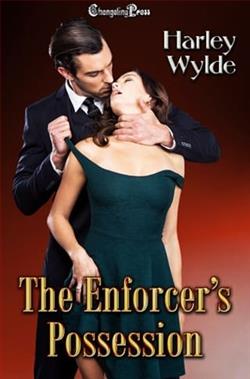Page 53 of Foul Days
“Stop it!” Kosara shouted. “You’re scaring our guest!”
A faint sorry drifted from the hallway, quiet as a sigh, almost inaudible over the wind’s howling.
Bakharov didn’t put his gun away. He stared at Kosara. “What the heck was that?”
Kosara shrugged. The voice had been too quiet to recognise. But it was certainly not Nevena: kikimoras didn’t apologise.
“One of the household spirits, most likely,” Kosara said.
Bakharov kept looking around, his pistol swinging back and forth. “What?”
“Household spirits. Will you please put that thing away?”
Bakharov looked down at his revolver as if he hadn’t noticed it before. Finally, he returned it to its holster. “When you say ‘spirits,’ do you mean you have ghosts in your house?”
“Yeah, I suppose, in a way. Don’t worry, you’ll meet them soon enough.”
“I will?”
“They’ll probably come out to say hello. Don’t be rude, they can be very touchy, but they’re not dangerous. If you don’t see them, don’t panic, not everyone can. My mother never could. Well, hungry or not?”
Bakharov didn’t reply. His eyes still darted around, probably searching the dark corners of the house for ghosts.
“Come on,” Kosara said. “Don’t insult my hospitality.”
He sighed. “I suppose I could eat something.”
Kosara selected a few jars from last winter’s preserves and pickles. Roast pepper spread and pickled gherkins, green tomatoes and turshiya, aubergine relish and sour cabbage. Her mouth watered. Finally, some proper food.
Bakharov studied the selection carefully. “Is there any food in all of Chernograd that isn’t pickled or fermented?”
Kosara rolled her eyes. If she was getting fed for free, she wouldn’t have been that picky.
“Not in this house.” She opened the jar of roasted peppers and took in their smoky scent. It seemed to be in perfect condition, even a year later. The kitchen spirit had done a great job preserving it. “Most of our food is imported from Belograd. It costs an arm and a leg to get it over the Wall. We can’t afford anything fancy all that often.”
“What about coffee or tobacco?”
“Those are necessities. We get coffee, alcohol, and tobacco first. Everything else is optional, if there’s space. Can you imagine what would happen if Chernograd was left without tobacco? There would be riots!”
“Everything you just listed is terribly unhealthy.”
“The average life expectancy in Chernograd is fifty-seven years. Might as well enjoy them.”
“Maybe it would be higher if you led a healthier lifestyle.”
“Or maybe it wouldn’t. You never know when the monsters will get you. Carpet diem.”
“Carpe.”
“Whatever.”
Bakharov considered this for a moment, a piece of gherkin hanging off his fork. He winced every time he lifted the fork to his mouth with his wounded arm. “What do you export in return?” he asked.
Kosara was surprised he hadn’t figured it out, given his job. Then again, the Belogradean government liked to pretend Chernograd didn’t exist. They didn’t advertise the trade between the two cities.
She swallowed her bite of smoky pepper relish. “Magic. Amulets, talismans, potions and poisons, enchanted cosmetics, and extra potent herbs.”
“Ah,” Bakharov said. “Makes sense.”















